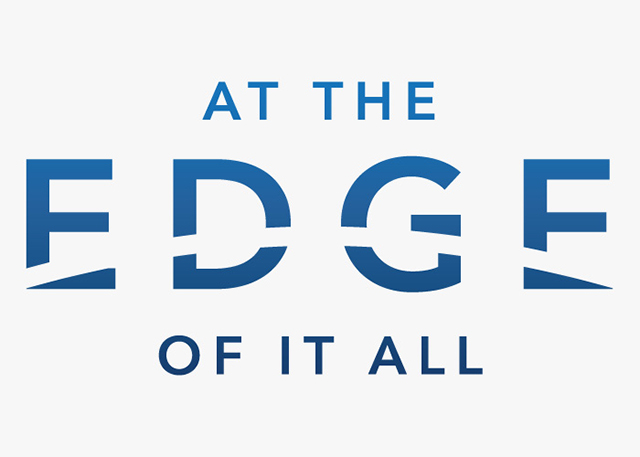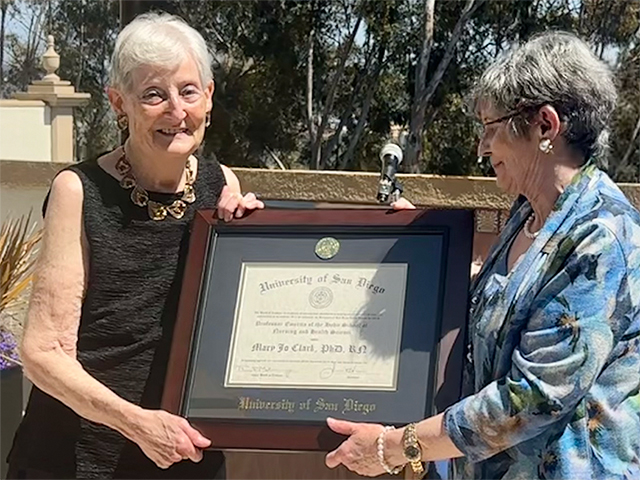USD School of Business Leads the Way Forward

With more than three decades of experience as an educator, researcher and consultant, USD School of Business Dean Jaime Alonso Gómez isn’t one to get caught up in trends or fads. The seemingly seismic recent swings of the Dow Jones barely raise an eyebrow. Last decade’s dot-com boom and subsequent bust? Easily explained through Newton’s third law of physics: for every action, there is an equal and opposite reaction. Truth be told, it’s hard to imagine much of anything ruffling the feathers of a man whose poise and polish are revered throughout the international business community.
But get him talking about the School of Business and its recent across-the-board ascension in academic rankings, and something strange happens. An unmistakable gleam appears in his focused gaze. Hands that were once folded and still become animated points of emphasis. There’s even a smile of satisfaction peering out from beneath his famously flocculent mustache.
Given the school’s recent placement in rarified academic air, there’s clearly plenty for Gómez to smile about. “It is gratifying to receive recognition for the success of our students and alumni, the dedication of our faculty and staff and the engagement of our business community,” he says. “Our graduates are positively impacting the business world on a variety of levels, and that is something I’m very proud of.”
Upward Trajectory
Thanks to its focus on harnessing students’ entrepreneurial spirit and fueling their drive for innovation, USD has firmly entrenched itself in the upper-echelon of business education, both locally and globally. Financial Times, one of the world’s preeminent business publications, recently ranked USD’s MBA program 28th in the nation, and 59th in the world. The ranking places the program in the top five percent of the approximately 2,000 programs worldwide. Among the 105 ranked schools, only 47 are in the United States, and just six are in California.
Additionally, the school’s undergraduate program ranks among the top 50 (No. 41) in the country, according to Businessweek magazine. When compiling its rankings, Businessweek placed heavy emphasis on graduate feedback, employer opinions, internship opportunities and career placement. The Financial Times weighted its ranking criteria in the areas of salary, salary increments, faculty research, placement and international mobility. The school’s undergraduate and graduate programs both received high marks for quality of faculty, student services, facilities and career development.
Gómez sees the recent rankings bump to be intrinsically tied to the school’s mission of developing responsible business leaders — socially, environmentally and professionally — with a global mindset.
“We provide a values-based, well-rounded education,” he says. “This allows our graduates to not only internationally competitive, but they also provide services to society. They are socially responsible and internationally competitive.”
A Student-Centric Approach
So what’s the secret to the school’s success? Academic rigor certainly heads that list, as small class size and award-winning faculty create an environment where innovative ideas and active engagement key student development. A focus on hands-on, experiential learning deepens the connection between knowledge and application, and the intellectual equity students are building during their matriculation is translating into jobs once they graduate.
The numbers speak for themselves: 98 percent of USD School of Business graduates have a job less than six months after earning their diploma, and 71 percent of seniors receive their first job offer prior to graduating. That’s real return on investment, and Associate Dean of Graduate Programs Barbara Lougee believes the school’s commitment to student support is a game-changer.
“What differentiates us from others schools is that we are very student-centric,” she says. “We have small class sizes, our faculty are hands on, our mentorship program is robust, and our student service is personalized, especially the services we offer through our revitalized career services department.”
The I’s Have It
In addition to its exemplary student support services, a key ingredient of the School of Business’ recipe for success is a value-proposition based on what Gómez refers to as “the tetra I’s.” The basic premise is that, at its core, a School of Business education is intellectually demanding, innovation driven, international in nature and integrity based.
“In business education, there is an emphasis on supporting the idea of a triple bottom line: people, planet and profit,” Gómez explains. “Our school values and supports each of those ideals, but we feel the tetra I value proposition provides students a framework to develop the type of innovative, integrity-based business practices that will improve society as a whole.”
It’s one thing to develop graduates who are capable of running a business focused solely on improving the bottom line; it’s quite another to produce agents of change who understand and merge the seemingly disparate principles of business development and social responsibility.
“Creating socially responsible wealth is a point of emphasis for our students, as it’s beneficial for not only the company they work for, but for the world,” Gómez says. “This tetra I philosophy makes the practice of social entrepreneurship almost intuitive for our graduates. We believe our students leave the school with a very well-rounded education, and that they are doing a wonderful job in helping change the way the world does business.”
— Mike Sauer



